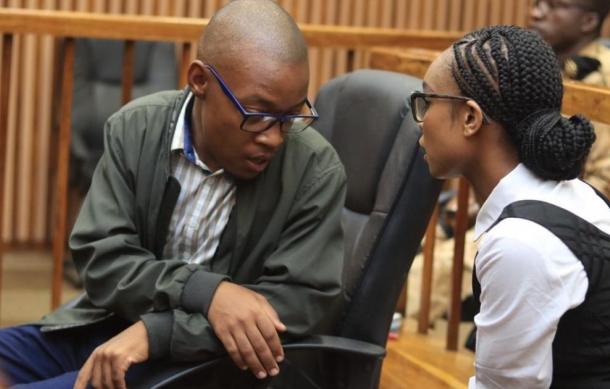
The State has questioned the timing of murder accused Azaan Madisia and her brother Steven Mulundu's apology to the family of the late Shannon Wasserfall.
The two are on trial for Wasserfall's murder in April 2020 and had been hiding the evidence of the deed until the body was discovered in a shallow grave outside of Walvis Bay in October of that year.
Testifying in their own defense, both Madisia and Mulundu offered their apologies to the bereaved family.
The state described Madisia's apology as a calculated move to elicit sympathy from the court, noting that it took the accused six months to come clean and show any remorse.
The prosecution alleges that Madisia was responsible for the death of Shannon Wasserfal and that she, along with her brother, attempted to have the crime covered up.
The prosecution suggested that inconsistencies were found in Madisia's statements over the course of the investigation.
Initially, she claimed that she and Mulundu had both dug the shallow grave in which they buried the deceased by hand.
Later, she revised her statement, asserting that she alone was responsible for the digging and that her brother waited in the car.
Additionally, Madisia replaced the tiles in her room despite being aware that it was a crime scene, and made suspicious online searches related to burning human bones to ashes and the maximum temperature a human body can endure.
Madisia's Legal Aid lawyer, Albert Titus, however, remained adamant that his client merely tidied up the flat, not cleaned it.
The state further told the court that Madisia had no medical qualification to determine whether Wasserfall's body was indeed lifeless, and thus the only way she could guarantee that her victim was indeed dead was to bury her.
On the prosecution's charge that she lacked any empathy for Wasserfall's family, Madisia said it took her as long as half a year to gather the courage to come forward.
In Mulundu's testimony, he claimed he had no prior relationship with the victim and only discovered her lifeless body when he arrived at Madisia's home.
Mulundu recounted that despite suggesting that the police or an ambulance be called, Madisia insisted on burying the victim's body in a shallow grave.
Asked why he proceeded to assist his sister in disposing of the body, contrary to his initial advice to her, he told the court that he felt pity for his sister, whom he described as close to him.
The trial continues before High Court Judge Christi Liebenberg.





